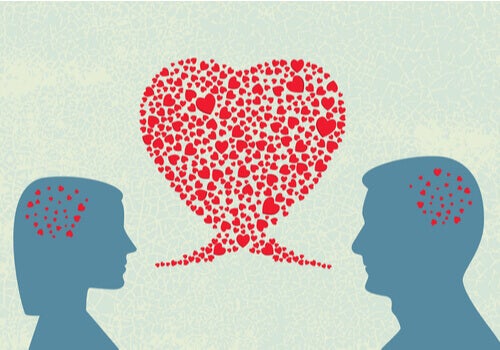People often say that when someone is in love, one way or another, they lose their minds; however, neuroscience has shown that the opposite happens: loving makes us smarter.
When a person is in love, many things change in their brain and physiology, this experience is very special precisely because of that.
- Anyone who is in love.
- Especially at the beginning of the relationship.
- Feels more awake and emotionally connected to the world.
- In addition.
- Becomes more empathetic and compassionate.
The fact is that loving makes us better human beings. In addition, neuroscience has found that loving also makes us smarter. The chemistry of love resides mainly in the brain and the transformation that occurs when a person falls in love also reaches areas that perform cognitive functions.
“Feeling the love of the people we love is a fire that feeds our lives. -Pablo Neruda-
To conclude that loving makes us smarter, a group of researchers at the University of Chicago scanned the brains of several people who were in love. These images, in addition to other evidence, have shown that people who like to think faster perceive each other’s behaviors and ideas more clearly, and are also more creative.
To reach these conclusions, the researchers used electrodes, placed them in the participants’ heads and then showed them a series of photos, including one of their partners, as well as being given different names, including those of their partners.
For example, researchers found that 12 areas of the brain were activated when they saw their loved one or heard their name. One of the areas that had a particularly intense activity was angular rotation, a region traditionally associated with abstract thinking and creativity. The activity did not stop when participants saw pictures of other people or heard other names.
The results of the study were pretty conclusive: aren’t you, you’re going crazy?In fact, loving really seems to make us smarter.
Researchers compared angular rotation with a small robot that activates a complex neural network because this area is closely related to other regions of the brain.
Angular rotation plays a role in functions such as number and language processing, as well as highly complex autobiographical data, which means that through love we also acquire a special ability to better understand our own behaviors, this occurs at a deeper level than in normal situations.
This increase in thinking and perception makes lovers more able to understand the behavior of others on a deeper level, in this way, they perceive the characteristics of others more effectively and better recognize their feelings, so researchers concluded that loving makes us better people.
It is clear that all these activations and brain reactions are the most intense during the passion phase, however, another study found that the same effects can be observed later in the relationship, while love was present, there were real benefits, even if love was not as intense as at first.
A study from the University of California confirmed this. On this occasion, researchers studied couples who had been together, on average, for 21. 4 years; what these couples had in common was that they all claimed to be still in love with their respective partners. Researchers found that their brains reacted in the same way. as much as the couples we mentioned earlier, who had recently fallen in love.
An important observation was an increase in the amount of dopamine in the brain, dopamine is a neurotransmitter that has important effects on mood and also influences cognitive activity, basically helps regulate and modulate information flows, in this sense, a dopamine deficiency leads to memory and attention deficits, and difficulty solving problems.
From all this evidence we can say that loving really makes us smarter, this intelligence not only applies to strictly cognitive problems, but encompasses the vast world of emotional intelligence, it is one more reason to love, without fear and without fear. un measured.

